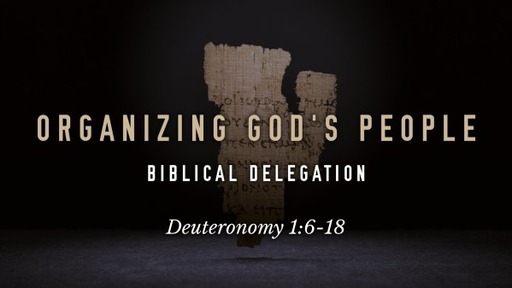Organizing God's People

Organizing God’s People
Four matters regarding justice are mentioned.
1. Disputes between fellow Israelites or with foreign inhabitants in the land were to be arbitrated (v.16).
2. The directives for making decisions include no partiality; small and great were to be heard on an equal basis (v.17a).
3. Judges were not to fear man because juridical process rested on the realization that “judgment belongs to God” (v.17b).
4. Cases too difficult for the judges were to be referred to Moses (v.17c).
In a lecture on Deuteronomy, Luther notes that the question of persons and government comes before the exposition of Law, since laws are useless without persons to administer and enforce them. Magistrates are to endure the burdens and disputes of the people as servants, not as masters (Collected Works, vol. 9 [1960] 17). Luther also notes that no account is taken here of the rich, powerful, noble, or strong for handling public office, as is the usual custom. It is the wise, understanding, and experienced who are to be selected, even if they are poor, lowly, and weak. Moreover, if the choice is between a leader who is good but not prudent or one who is prudent but not good, the prudent though not good is to be preferred. In Luther’s words, such a “good man would actually rule nothing but would be ruled only by others, and at that only by the worst people. Even if the prudent man harms good people, yet at the same time he governs the evil ones, which is the most necessary … since the world is nothing else than a crowd of evil people” (p. 19).
Abraham Lincoln, like Moses, understood the motivation that subordinates receive when the top man is willing to assume responsibility for others. He demonstrated this truth immediately following the Battle of Gettysburg. Lincoln sensed an opportunity to end the war by driving hard against Lee’s army as it retreated. A swift, daring attack might do it. As commander-in-chief of the army, he ordered General Meade to pursue. A friendly note in the president’s handwriting accompanied the official orders. It said, “The order I enclose is not on record. If you succeed, you need not publish the order. If you fail, publish it. Then, if you succeed, you will have all the credit of the movement. If not, I’ll take the responsibility.” With that kind of loyalty, Lincoln instilled confidence in his generals. They would go the extra mile for him.
